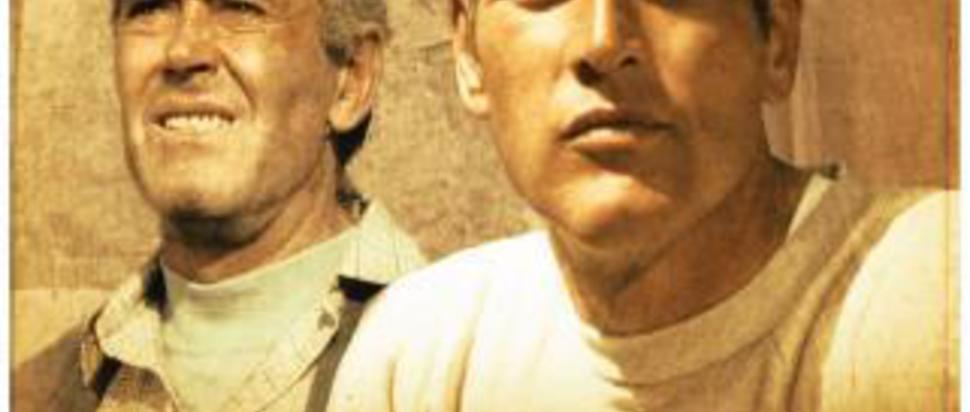

I think if you see Sometimes A Great Notion you'll agree. Paul Newman deserved a lot more credit for this film than he got. Bing Crosby recorded a fine version of it on one of his albums. Sometimes A Great Notion also got a second Oscar nomination for Best Song with We're All His Children by Henry Mancini and Alan and Marilyn Bergman. Richard Jaeckel got a nomination for Best Supporting Actor and the pity is that he was up against another popular character actor in Ben Johnson who won for The Last Picture Show. It will stay with you forever as it has me since I saw the film when it first came out. It's a long drawn out affair for reasons you'll know if you see the film. Newman reached his creative heights in Jaeckel's death scene which was played between him and Jaeckel. One of them Richard Jaeckel got his career role as a Stamper cousin. And he got some good performances from the rest of the cast. Newman directed the film and he had a good eye for the scenery of the Oregon logging country. They would be half brothers Paul Newman and Michael Sarrazin who've also got issues between themselves that may prevent the Stampers from forming a united front. But whereas Spencer had a noble dignity to him, Ben Stamper is a dissolute old cuss who has enjoyed all the vices known and imparted a love for them unto his children. There are some similarities between Fonda's character and the family patriarch he played in Spencer's Mountain.


But a strike by timber union loggers causes enmity between them and the Stampers who are seen as scabs. Enough to survive, but they do it on their own. Henry Fonda plays the head of the Stamper clan who own a lot of acreage in Oregon timber country and the family business is cutting logs. The film seem to stretch everyone's creative levels especially one performer I'll single out later. The delicate balance between humor and horror, the suspenseful drawing out of time, the genuine feeling of brotherly love, the finely judged performances (Jaeckel was nominated for an Oscar), and Newman's expert use of long shots (emphasizing their utter desolation) and closeups (giving us a sense of claustrophobia) create the best scene he ever directedĪ lot of people seem to be down on this film for reasons I really can't understand.
#First reviews of sometimes a great notion professional#
The film is based on Ken Kesey's complex novel of a contemporary family of lumberjacks who stubbornly maintain 19th-century frontier values, and whose motto is "Never Give a Inch." The Stamper's patriarch, Henry (Henry Fonda), his son Hank (Newman) and nephew Joe Ben (Richard Jaeckel) alienate the entire community by refusing to participate in a local strike, because they're anti-union and want to honor their contract to deliver lumber They overcome hostility, sabotage and violence, but succumb to nature Hank is another of Newman's tough, macho individualist, somewhat like "Hud." He brawls, hunts, drinks beer constantly, has no social conscience, and is coldly sarcastic, especially toward the strikers and his half-brother Lee (Michael Sarrazin), a hippie with pro-union and women's lib ideas Hank shares his father's professional pride, rigid conservatism and purpose in life: 'To work and eat and sleep and screw and drinkthat's all there is." The women play a marginal role, as is customary in male adventure filmsthey cook, clean and are passive sex objects Despite the ideological schizophrenia, ill-defined relationships and implausible plot resolutions, the film is surprisingly stirring Newman captures with zest the details of logging and the robust family life, as well as the kind of exhilarating camaraderie and professionalism that characterized the best thirties adventure films This extroverted masculine adventure contrasts sharply with the two introverted, confined, feminine dramas he has directed, but, interestingly, the combination of toughness and sensitivity constitutes Newman's own screen image.


 0 kommentar(er)
0 kommentar(er)
